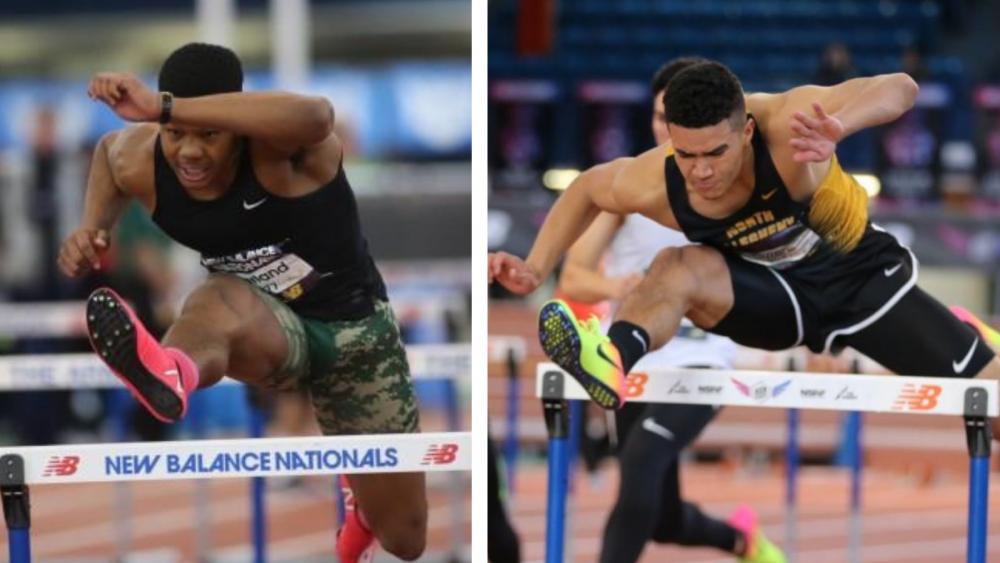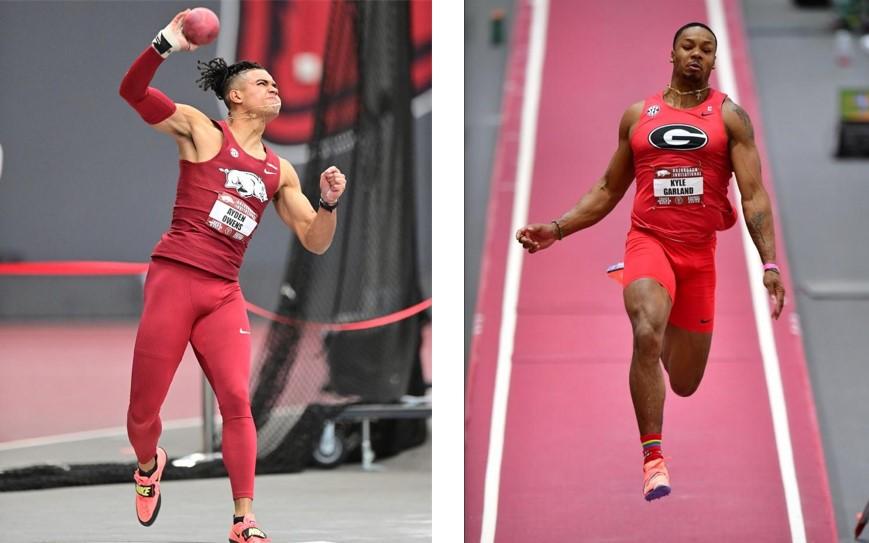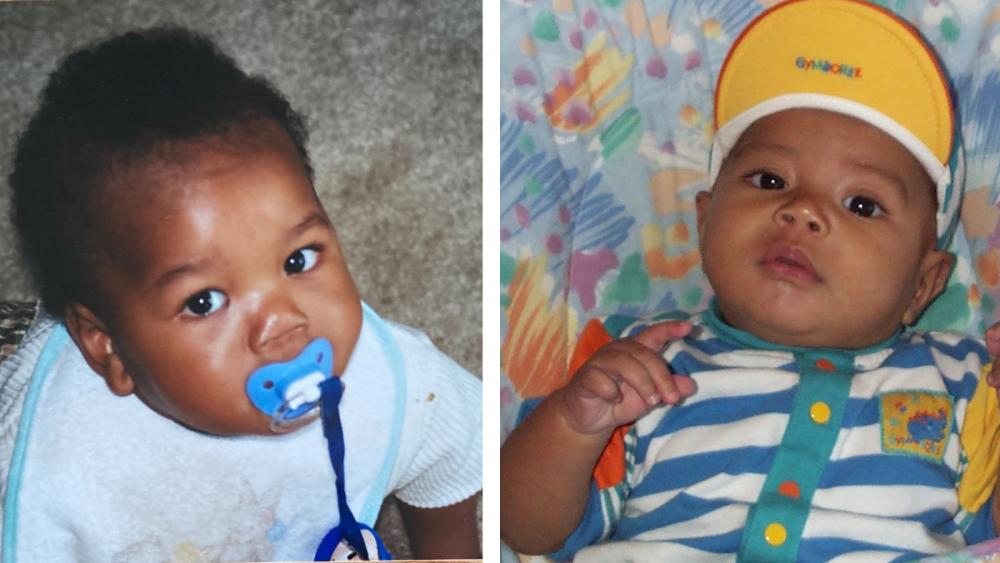Folders |
Kyle Garland and Ayden Owens-Delerme: Decathletes Born On Same Day Arrive At NCAAs And Worlds TogetherPublished by
Born At The Right TimeKyle Garland and Ayden Owens-Delerme share a birthday, a home state and a bright future in the sport of track and field
A DyeStat story by Dave Devine _________ The church bells chime And the whole world whispering Born at the right time - Born at the Right Time, Paul Simon _________ The church bells were ringing that day. Of course they were. Up and down Germantown Avenue, from Nicetown-Tioga to Chestnut Hill. Tolling in Kensington and Ogontz. Wissahickon out to West Oak Lane. Another Sunday morning in Philadelphia. Memorial Day weekend, May 2000. And all through the city, services were beginning. The faithful, filling the pews. Priests and pastors reviewing their sermons, preparing to preach. But there was one minister, maneuvering through the light morning traffic in his green Ford Taurus, who was starting to worry. Keith Garland, an associate pastor at Nazarene Baptist Church, glanced across at his pregnant wife, Joyce, in the passenger seat, and wondered if she’d make it through the service. She was already two weeks past her delivery date, scheduled for an induction the following Tuesday, but as Keith watched her grow increasingly uncomfortable, he began to doubt the baby would wait. It was his morning to preach, but minutes after pulling into the parking lot, he turned the Taurus around. He still recalls his hurried words to the senior pastor: “You’re going to have to call somebody in from the bullpen.” It was a straight shot up Germantown Avenue from Nazarene Baptist to Chestnut Hill Hospital, but a maddening string of red lights slowed their progress. By the time Keith and Joyce reached the hospital, the doctors informed them that Joyce was too far along to administer a pain-blocking epidural. It was 10:30 in the morning. Their son, Kyle, wouldn’t be born for another nine hours: 7:37 in the evening, May 28, 2000. It was a long, difficult labor; eventually the doctors resorted to an emergency delivery. Kyle’s size, more than anything, created the complication. Even in the early months of Joyce’s pregnancy, acquaintances had thought she was having twins. “This guy comes out,” Keith remembers, “and he’s such a big kid, the nurses and doctors are calling in other people to come see the size of this baby. He winds up being almost 11 pounds. Like, 10 pounds and change.” Kyle spent his first few days in the hospital’s neonatal intensive care unit, dwarfing all the other infants in the NICU. As people of faith, Keith and Joyce began to suspect there might be something remarkable about this child that arrived through such a difficult birth. “We just had no way of knowing what it would be.” Here was another thing they had no way of knowing: On the far side of Pennsylvania, earlier that day, another baby boy was born. At Forbes Regional Hospital in Monroeville, 10 miles east of Pittsburgh, just after 2:30 in the morning, Ayden Owens-Delerme entered the world. Son of Michael and Carmen Owens. In this case, there was no dramatic rush to the hospital, no traumatic delivery. But this was another big baby — 9 pounds, 7 ounces. Another mother whose friends and family suspected she was having twins, even though Carmen and Mike already had twin 18-month-old daughters at home. Plus, two older sons. “We had four babies in three years,” Carmen recalls. “It was quite hectic.” Ayden was the fifth of an eventual eight children — five biological and three adopted — but even in a family that size, there seemed to be something different from the outset about this one. “He was definitely harder,” Carmen says now, “because he needed to eat much more than my other ones. I remember having to call the pediatrician, saying ‘He just needs more.’ He was so big.” A pair of baby boys, both born on May 28, 2000. Both larger than expected. Both described by parents as full of energy, always moving. Both born hungry, insatiable, seemingly needing more. Two babies, 300 miles apart. Steel City and the City of Brotherly Love. What are the chances they would ever meet? (Spoiler alert: They are both competing this week at the NCAA Division 1 Outdoor Championships at Hayward Field in Eugene, Ore. in the men's decathlon).
There was bickering and laughter. There were headlocks and high-fives. Shouting matches and hushed conversations. There was late-night whispering, long after the lights were off. Of course there was. How could there not be? The four oldest Owens boys, crammed into one bedroom. Spilling across two bunk beds, all lanky arms and legs, more energy than the walls could contain. That was Ayden’s childhood. “For most of my life,” he says, “we all just slept in one room. We’d sometimes get in fights, arguments, we’d be talking late at night and our parents would get mad or whatever…but just to have that experience growing up is kind of what shaped me.” In a family that eventually grew to 10, competition came naturally. Whether squeezing in words during a conversation or scrapping for seconds at the dinner table, Ayden almost always had to contend with a sibling. “Just a lot of energy,” he says, “with all those people in one house.” His father, Mike, remembers Ayden as an exceptionally busy kid, always into something. When he was about 18 months old, Mike watched Ayden toss a ball in the air and hit it cleanly with a plastic bat — one deft, fluid movement. “Definitely a penchant for sports early on,” Mike says. Ayden’s mom, Carmen, had been athletic growing up, but the school she attended in her small Pennsylvania town offered limited athletic opportunities for girls. She participated in gymnastics and was a cheerleader from high school through college. But she also had seven brothers she chased and raced as a child. “I always say Ayden got a little bit from me,” Carmen says, “even though his dad was—” She pauses for a gentle jab at Mike. “— I guess, more of an athlete.” Mike played multiple sports in high school before moving on to the University of Virginia, where he was a four-year starter and captain on the men’s basketball team. For a while, Ayden followed closely in those footsteps, pursuing traditional “ball sports” like football, basketball and baseball, finding success at every turn. Even when the games weren’t organized, he was always outside playing. Television shows and video games failed to hold his attention. In part, he says, it was because they were often occupied by other family members, but there were other reasons, too. “Ultimately, my attention span was too short to sit front of a TV. I was too jittery and always wanted to be moving around. I was drawn to being outside.” And the video games? “I would break controllers, I would get angry. I’d get in arguments and fights playing video games. So basically, as I matured, I realized that it probably wasn’t the best pastime for Ayden.” The impulses he struggled to contain while playing video games seeped into his athletic pursuits as well. Looking back, Ayden describes his relationship with traditional team sports as “pretty messy.” A combination of assertiveness, impatience, precocious talent and simmering perfectionism began to drain the joy from more team-oriented games. “I was a pretty aggressive kid,” he says. “I’d get angry if I missed a shot or had to deal with teammates — the whole nine.” When he was about 10 years old, a friend of Carmen’s recommended a local youth track program, suggesting she enroll the children. Until then, the Owens kids had been involved in a variety of sports, but track and field hadn’t been on the radar. Carmen decided they better check it out. Their oldest was already in high school, but she loaded the other seven into the family car and ferried the entire crew to track practice. There, she’d wait in the car, watching as her kids explored the different events. “Some of us liked it, some of us didn’t,” Ayden recalls, “but we were all there...It was a couple of hours a week taking the responsibility off her, letting us put our energies into something where we could use it in a good way.” Ayden, in particular, took to this sport that involved running in circles. For Mike and Carmen, finding that fit had been a matter of perseverance. After watching their son struggle to find connection on various teams, they didn’t give up. They kept expanding the opportunities, opening new avenues until something stuck. And at that track practice with Carmen waiting in the car, Ayden found his place. “What drew me to track and field was the individual nature,” he says. “I felt like it was a sanctuary…I had control of my own performance, and no one else was responsible for anything positive or negative that was happening to me.” For some, he acknowledges, that might create pressure. “But for me it was like, freeing.”
There were library books and Google searches. History lessons and scoring charts and YouTube videos — rewound, slowed down and advanced a frame at a time. Of course there were. Hadn’t Kyle done the same thing when he decided he wanted to be a surgeon? Dug into the research, read the articles, watched all the videos? But this pursuit was different. In the sport of track and field — and the decathlon, specifically — Kyle found a passion that truly fit his personality. He became a track guy, although it didn’t start out that way. When he first joined the Ivy Hill Track Club at the age of 7, Kyle hated practice. He’d collapse in tears before the afternoon drive to the track, begging his parents: Please! l don’t wanna go! I don’t wanna go… But those parents, Keith and Joyce, noticed something about their energetic son: he was enjoying himself once practice began. So, they kept bringing him. About a year later, Keith founded a youth track club as an extension of his existing non-profit, No More Xcuses Ministries, and Kyle began training with that team. Keith had been a sprinter for Philadelphia’s Northeast High before a short track career at Temple University — “He was a fast dude back in the day,” Kyle says — and drew on that background to help his son and the other young athletes begin to explore track and field. At the same time, Kyle — almost always bigger, and frequently more athletic, than other kids his age — was also finding success in sports like football and basketball. He experienced mostly positive coaching on those teams, but also felt the sting of frustrations like restricted playing time and favoritism, robbing those sports of the joy he found in track and field. The frustration only mounted as high school approached. “We had some really tough conversations when he was in seventh or eighth grade,” Keith remembers, “where he was questioning if he even wanted to do sports at all, because he didn’t feel like he’d get a fair shot. And my thing was, ‘Dude, if you do track and field, the numbers are what they are. You don’t have dependency on a bunch other people.” Kyle decided he was all-in on track. By the age of 13, he’d begun to stand out in a range of events, particularly the high jump and sprints, on the AAU and Junior Olympic circuit. At an AAU meet in New Jersey, an official suggested Kyle consider the multi-events. At the time, for Kyle’s age group, that event was the pentathlon. “I was like, ‘I’m gonna give this a shot,’” Kyle recalls. “I’m pretty good at it now, let’s see how good I can get.” He finished fifth in his first AAU summer pentathlon. By then, the hooks were already set. And so began the research. The diligent study. The effort to learn everything he could about this new pursuit combining several things he already loved with some brand new challenges. And the more he studied, the more Kyle thrilled at the uniqueness of each event, the need to master numerous components in order to become elite. “I wanted to learn all the nuances of it,” he says. And of course, Kyle wasn’t the only one studying. His father’s background as a sprinter, while sufficient when he started the No More Xcuses Track Club, had done little to prepare Keith for mentoring the more specialized events his son was attempting. “I didn’t know anything about pole vault,” Keith says with a chuckle. “Didn’t know anything about discus…we both sharpened our skills and honed in on things. And Kyle — he’s a stickler. He’s a true student of the game.” But even as they honed in on the specialties, the focus, especially in those early years, was on building strength. Creating body awareness. Helping Kyle understand how he needed to move in different situations. Shortly before high school began, there was a conversation that became pivotal to Kyle’s progression. An exchange that Keith describes, ever the pastor, with a familiar Biblical phrase. “We had our, kind of, ‘Come to Jesus’ moment when he was 13,” Keith says, “and I was like, ‘Kyle, you really want to do this? Because, dude, if you really want to be good, this is what it’s going to take.’” Kyle assured his father that he did. He wanted to be among the elite. Wanted to make a name for himself in the sport. “At that point, he locked in,” Keith says. “That’s when we started our regimen.”
On The Rise Eventually, they found each other. Of course they did. They were like a pair of comets, flickering toward brilliance in the early years of high school. Tracking similar orbits, rarely crossing paths. Never actually colliding, until they did. Ayden was at North Allegheny, a public high school in a suburb north of Pittsburgh. Kyle attended Germantown Academy, a private school in Fort Washington, just outside Philadelphia. They were vaguely aware of each other from indoor state competitions, but because Germantown Academy did not belong to the Pennsylvania Interscholastic Athletic Association (PIAA), Kyle didn’t have a chance to compete in the governing body’s outdoor state championships. It meant that their primary point of connection, at least initially, was at the postseason national high school meets. In 2016, Kyle was an impressive runner-up as a sophomore at the New Balance Nationals Indoor pentathlon. Ayden finished 28th in the Emerging Elite 60-meter hurdles (Kyle was 29th in the same division, though they ran in separate heats). Primarily a hurdler at that point, Ayden — encouraged by his North Allegheny coaches — began realizing that he might have the versatility to expand his repertoire. In the subsequent New Balance Nationals Outdoor, Kyle finished sixth in the decathlon while Ayden, still a novice in the multis, took 12th. His Philly rival had made an impression, though. “Kyle ended up beating me by a whole lot that year,” Ayden remembers. “He was on a different level at that point in the decathlon. My growth had not been what his had been, and that was always a point of motivation for me: this guy, from the other side of the state.” Even then, at the end of 10th grade, Ayden had a sense he might be seeing Kyle for the rest of his athletic career. “I said to myself, ‘It’s time to start stepping up.’” At the 2017 New Balance Nationals Indoor, Kyle won the pentathlon and set a junior class record. Ayden finished third. That June at New Balance Nationals Outdoor, Ayden dominated the decathlon, winning by more than 500 points, while Kyle competed in individual events. And then came the 2018 New Balance Nationals Indoor pentathlon, their senior year. By that point, the gap had narrowed substantially. Kyle won, but this time only defeated Ayden by 200 points. The two Pennsylvanians were first and second in the nation. That summer, before heading off to college — Kyle to the University of Georgia, Ayden to the University of Southern California — both competed internationally at the 2018 World Under-20 Championships in Tampere, Finland. Kyle was a member of Team USA by virtue of his victory at the USATF Junior Championships. Ayden had hoped to compete at that same junior championship, but the decathlon’s opening day conflicted with his high school commencement. Ayden was determined to graduate from North Allegheny with his mom in the audience. Planning ahead, he petitioned to represent Puerto Rico, birthplace of Carmen’s parents and an island he’d visited with family over the years. After a lengthy qualification process that included a trip to compete shortly after the devastation of Hurricane Maria, Ayden wore the Puerto Rican kit for the first time in Tampere. Kyle was seventh in that U20 decathlon, while Ayden, suffering a disqualification in the 400-meter dash, battled home in 12th. Despite competing under different flags in the crowded international field, they both appreciated the presence of a familiar face. “It’s always been that way,” Ayden says. “Mutual acknowledgement and respect, from the earliest days we’d compete against each other.”
Believing They Belong By the time the 2022 NCAA Division 1 Indoor Championships arrived this past March, the distance between Kyle and Ayden, which once stood at 300 miles, had been whittled to the elbow room on a starting line. A few feet at most. The time separating them, 17 hours on the day they were born, had dwindled to fewer than 14 seconds. Of course it had. Hadn’t these twin comets been spiraling gradually closer over the years? Disrupted, certainly, by pandemic and a series of untimely injuries, but nonetheless drawn, inexorably, by the gravity of their shared pursuit? There was Kyle, persevering at Georgia through injuries and a coaching change that temporarily knocked him off his trajectory. And Ayden, transferring from USC to Michigan after his freshman year, spending two successful years in Ann Arbor, overcoming his own injuries, and then transferring again with his remaining eligibility to graduate school at the University of Arkansas. Through it all, battling in tightly contested competitions: Kyle second at the 2021 NCAA Indoor meet, Ayden third. Ayden first, Kyle second at the 2022 Razorback Invitational. And then, at the 2022 NCAA Indoor Championships in Birmingham, Ala., Kyle leading the field into the heptathlon’s final event, the 1,000-meter run. Ayden lurking in fourth, 152 points behind and needing a minor miracle to claim the title. While Ayden held a seven-second advantage in personal bests for the distance, that wouldn’t be nearly enough to win. He would need to defeat Kyle by at least 13.5 seconds. “I couldn’t control what Kyle would run,” he says. “I had no idea what he could run. All I knew was what I could do, and hopefully it would be enough.” Ayden rallied for a four-second personal best of 2:31.55 to win the event. Then he turned, hands on knees, to watch the rest of the field finish. “Kyle’s still running,” he remembers, “guys are still crossing the finish line. I’m looking at the clock…trying to calculate. I knew it was going to be close.” Kyle stopped the clock in 2:46.07, just over 14 seconds behind. Ayden had his first NCAA title, clawing past his rival by 11 points: 6,211 to 6,200. Overwhelmed with emotion, he reeled through the finish area, celebrating with coaches, teammates and family, and then finding Kyle, still on the track. The two shared an exhausted embrace. “We just said, ‘Good work.’” Ayden recalls. “That’s really what it was — I think that was the extent of the conversation.” They walked off the track, urging each other to continue getting after it. “It was just one chapter that I happened to pull off,” Ayden says. “We’re just going to keep getting better, keep making more dramatic endings. We both knew, that’s not the end of the story.” Not even close. In mid-April at the 62nd Mt. SAC Relays, Ayden amassed an astonishing decathlon tally of 8,528 points. At the time, it was the second-highest total ever achieved by a collegian. Only Lindon Victor’s 2017 score of 8,539 was superior, but that decathlon included wind-aided marks in two events, rendering it ineligible for NCAA record consideration. Which meant that Ayden was the collegiate record-holder. He also elevated his own Puerto Rican national record and secured a qualifying mark for this summer’s World Athletics Championship in Eugene, Oregon. He’s already been named to the Puerto Rican team. In another nod to his heritage, he’s begun competing under the longer, hyphenated version of his name — Ayden Owens-Delerme — incorporating his mother’s maiden name and adopting the Puerto Rican practice of using both parent’s surnames. He’s excited for another opportunity to wear the Puerto Rican colors, to compete in his first world championship on U.S. soil. “It feels like a big load was taken off my shoulders, I’ve proven to myself that I belong here.” A few weeks after Ayden’s breakthrough, on May 6 and 7, Kyle took his big swing. He demolished his fellow Pennsylvanian’s collegiate record — also laying waste to Victor’s wind-aided mark — at the USATF Combined Event Championships in Fayetteville, Arkansas. Recording personal bests in six events, he rang up a jaw-dropping 8,720 points en route to a runner-up finish behind Tokyo Games fourth-placer Garrett Scantling. Since the Combined Events Championships also served as the U.S. trials for the World Champs, Kyle also secured a spot in Eugene, as part of Team USA. He, too, spoke of belonging in the aftermath of his monster performance. “The biggest thing for me,” he says, “has been knowing and really believing that I belong. This was my time to really step into this moment and embrace it.”
Born At The Right Time They know this isn’t the Kyle and Ayden Show. Of course they do. They’ve studied this event extensively, know far too much about their competition to make that mistake. They know the potency of the global challengers, the favorites, all the possible scenarios. And they recognize the dangers of facile media narratives, the pitfalls of focusing too keenly on a narrow plot. Have seen it before, in too many track meets. They know their history, too. The parallels to another vaunted decathlon rivalry. They remember how that turned out. But they also understand that the link is inevitable, particularly as the competition shifts from the collegiate to the international stage. “As we continue to grow and become more popular in the sport,” Ayden says, “I’m sure it’s going to continue. Those types of things are out of my control, how people choose to paint our rivalry.” Asked how he’d paint it, Ayden emphasizes shared respect and individual growth. “We’re not necessarily friends or best buds,” he allows, “but I respect him just like I do all my other competitors. At the end of the day, I don’t focus too much on what he’s doing, or his growth. I’m just trying to be the best I can be.” Kyle, too, is primarily focused on his own potential, but cherishes the opportunity to compete against Ayden when it comes. “It’s been a fun dynamic,” he says, “whether one of us is at home or we’re at the same competition, watching each other thrive and succeed. It’s fun, but also very motivating. Neither one of us can sit back and relax.” Especially now. They’ll meet again at the NCAA Outdoor Championships in Eugene, on June 8 and 9, and then back to Hayward Field in mid-July for the World Athletics Championships. Youth is on their side: they’ve just turned 22. Each has at least one more year of NCAA eligibility remaining. The 2024 Olympic Games in Paris aren’t that far off. And in 2028, when the Olympics are hosted in Los Angeles, Ayden and Kyle will be 28 — an age at which many decathletes are hitting their prime. It’s not hard to believe, as some might, that they were born at exactly the right time. Not difficult to imagine how it might play out. Just ask Kyle’s dad, Keith. “They’re going to beat up on each other for the next 10, 15 years,” he says. “I believe that. Back and forth their entire careers — I’ve believed that since they started, and they’re proving me right. Gotta stay healthy of course, but they’re two uniquely talented guys.” Uniquely talented, yes. And uniquely connected by geography and time. It may not be the Kyle and Ayden Show, at least not yet, but that dynamic is getting harder to ignore. “Two guys from Pennsylvania?” Ayden muses. “Born on the same day, doing what we’re doing? I think it’s a good thing. We’ll just continue to push the needle, continue to see how far we can take the sport.” More news
1 comment(s)
|













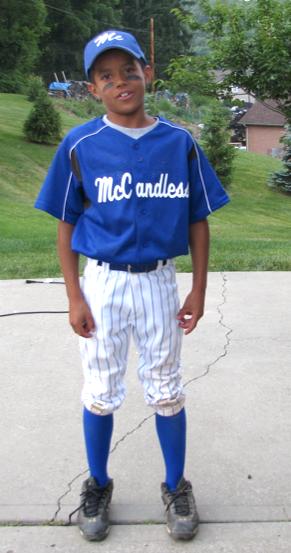 Ayden
Ayden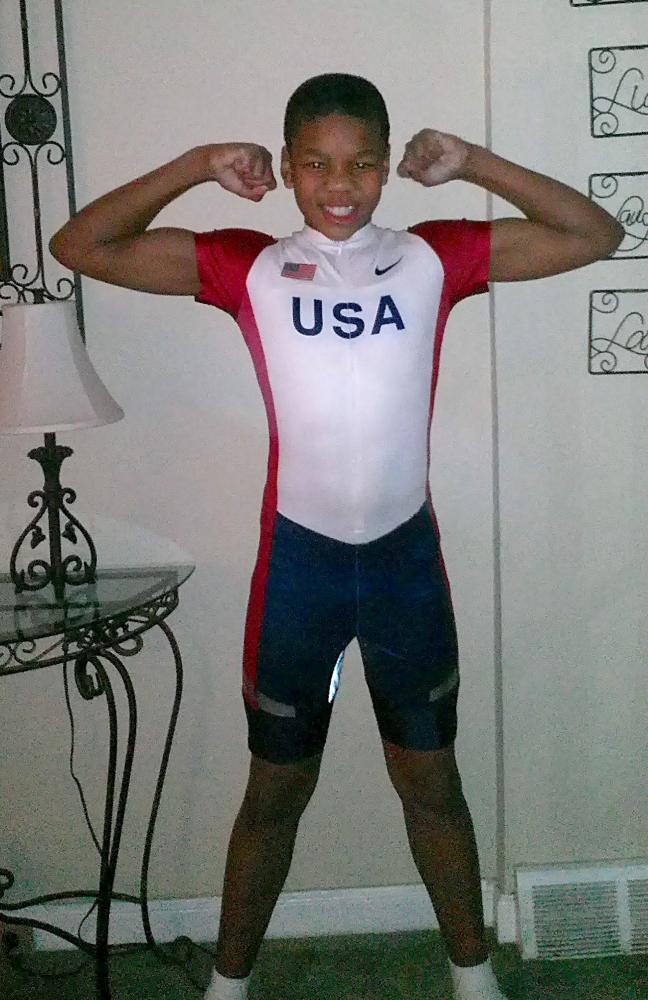 Kyle
Kyle